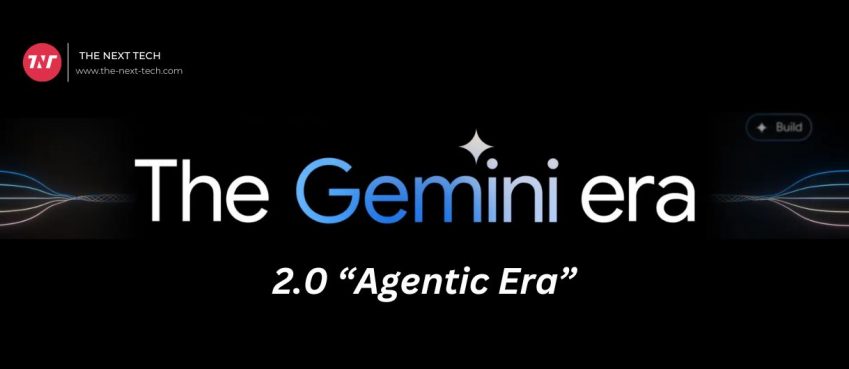
With the emergence of artificial intelligence, machine learning, deep learning, and NLP, Test automation services have achieved great breakthroughs and have helped several companies in developing and deploying applications in no time.
Artificial intelligence has started understanding verbal commands, evaluating information, analyzing data, recognizing defects, and correcting them better than we do. Due to the increasing maturity of AI’s algorithms and techniques, and the amazing development in the technology, AI in test automation has become an integral part of every project, replacing manual methods of testing.
Software test automation is an imperative process that ensures business requirements are fulfilled, customers are satisfied, and experience a successful journey during the software development lifecycle. Testing is a journey that the QA team and test engineers engage with thoroughly.
There are many challenges throughout this journey especially when there is manual testing that the QA needs to handle throughout the testing life cycle. Manual testing requires dedicated human resources which is costly and time-consuming and less reliable compared with smart automated testing.
In addition, there are many changes in both manual and traditional automated software testing including understanding requirements, testing coverage, testing planning and time to execute, updating the test scripts and cases, regression test coverage and many others.
As the software market demand grows, organizations need to secure their challenges and be ahead of the competitors. AI is a field that can be used in software testing to shorten the software development life cycle and reduce time to market.
Also read: DND Character Sheet: What It Is, How To Set Up, Backgrounds & Gameplay Terminology
The Need For Automation Testing Over Manual Testing
The AI Test Automation industry will produce more accurate results and will shorten the software development lifecycle than traditional testing techniques. When building software solutions, meeting deadlines will be challenging, especially due to the overwhelming software demands.
Therefore, AI will bridge this gap and will facilitate this challenge by shortening the required testing time. AI will eventually have dedicated tools to effectively test new technology like Cloud Computing, IoT, Big Data and other future technologies. Combining the new technologies will bring innovation to AI automation testing because AI will play the integrator role in generating the required testing data for a specific product.
Artificial intelligence will also play a key role in testing the customer requirements by applying predictive analysis to check other similar products and services, to better understand what new features the customers need. AI has the ability to analyze complex data automatically by using smart techniques and algorithms.
It will cover most of the software product testing in all areas including application development, website development, database applications, mobile applications, games industry, real-time-critical applications, embedded solutions and others.
The AI-based software testing tools are also designed to be innovative, agile and smart, and are sure to provide greater results to the beneficiaries as well as end-users. By using AI algorithms and techniques, organizations and businesses will improve the customer experience, enhance their product offering and increase the quality of the provided services and will bring software stability to their products.
The AI predictive analytics will play a major role in discovering all possible test cases and will make the software products more robust, reliable and will exceed customer expectations.
Also read: The Top 10 Digital Process Automation (DPA) Tools
Addressing Challenges in Test Automation through AI/ML Approaches
As mentioned earlier, the overall testing effort and coverage can be improved by infusing smart and intelligent test automation strategies to address pain points in traditional test automation. In the below section, we have picked up a few benefits of AI in test automation and elaborated them in detail, articulating the various key advantages of this innovative strategy.
The Self-healing Technique
With artificial intelligence in test automation, enterprises can leverage a significant self-healing technique. This is a solution that solves several issues in test automation such as test maintenance where automation scripts break whenever there is a change in the object property (Name, ID, Xpath, CSS etc.).
Manual identification of these object shifts and updating them in the object repository can consume a lot of time and adds up to the overall testing time and effort. With artificial intelligence, these issues can be automatically detected and fixed dynamically without any kind of human intervention. This concept is called the Dynamic Location Strategy.
Auto Generation of Test Scripts
The creation of automation test scripts is a tiring task in any automation project. Here, scripts must be developed using programming languages such as Java, Python, and Ruby. With artificial intelligence, developers can generate automated test scripts that take away at least 50% of the total automation effort.
For example, designing a medium complexity test case with 10 -15 steps, takes about two hours, including unit testing and running the scripts as a suite. With this, the demand for combining artificial intelligence and machine learning methods developed quicker to ease out the test script design effort.
Test Recommendation Engine
Artificial intelligence can help determine which test cases need to be run if there are any code changes to the application. The AI engine should identify tests that are relevant to the code fix and run only those scripts instead of the entire test suite. This will prevent quality analysts and teams from running the complete test suite for any minute developments in the application.
For this use case, machine learning algorithms can be applied to recognize the patterns and create suitable alternatives. This innovative combination should present the minimum tests to run for a given change made in the code.
This will help QA and testing teams to decrease their manual efforts in recognizing the smoke/regression tests to be run for every defect fix or release and take a risk-based path with true data-driven decisions.
Also read: How To Create A Second YouTube Channel? Steps To Create Multiple YouTube Channel + FAQs
Ai-based Predictive Analysis
This is another area where AI/ML will be able to predict the probability of a build failing when code changes are made to the application. A self-learning system will have the ability to make predictions based on historical data and will be able to create new test scripts and update the existing automation scripts as well.
This will help development teams release builds much quicker to production. AI algorithms can create tests based on production data or real data. The AI algorithm can identify actions that are frequently performed by users and can have them clustered into reusable components. This will help testing teams identify critical workflows, thereby increasing test coverage.
Artificial intelligence has the ability to analyze complex data automatically by using smart models and algorithms. Enterprises that leverage smart test automation services will improve the quality of the software and will have a major impact on the customers’ experience through providing solid defect-free applications and solutions.
It is expected that AI will play a key role in everything from software testing to development, eventually. The new role and scope for the testers will be focusing on enhancing the AI models, algorithms techniques to become smarter.
AI Testing algorithms will also connect to new technologies in the future ( like Cloud technology, IoT, Big Data and others) and will extract the best practices techniques that suit the client application to get more accurate and smart test cases and will generate perfect results.
Top 10 News
-
01
10 Exciting iPhone 16 Features You Can Try Right Now
Tuesday November 19, 2024
-
02
10 Best Anatomy Apps For Physiologist Beginners
Tuesday November 12, 2024
-
03
Top 10 Websites And Apps Like Thumbtack
Tuesday November 5, 2024
-
04
Top 10 Sites Like Omegle That Offer Random Video Chat
Monday October 21, 2024
-
05
Entrepreneurial Ideas To Make 5K In A Month (10 Realistic Wa...
Monday October 7, 2024
-
06
[10 Best] Cash Advance Apps Like Moneylion And Dave (No Cred...
Friday September 20, 2024
-
07
Top 10 Richest Person In The World
Tuesday August 27, 2024
-
08
Top 10 Unicorn Startups In The World (2024-25)
Monday August 26, 2024
-
09
Top 10 IT Companies In The World By Market Cap
Thursday August 22, 2024
-
10
[10 New] Best OnionPlay Alternatives To Stream TV Shows And ...
Tuesday June 11, 2024







